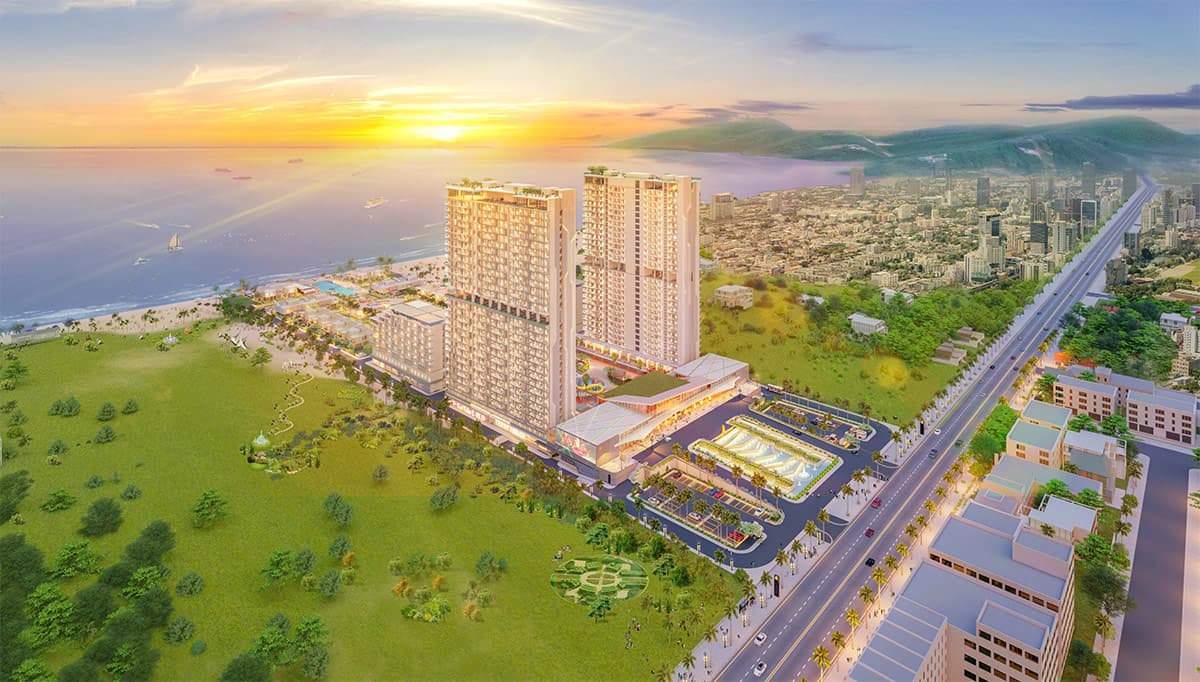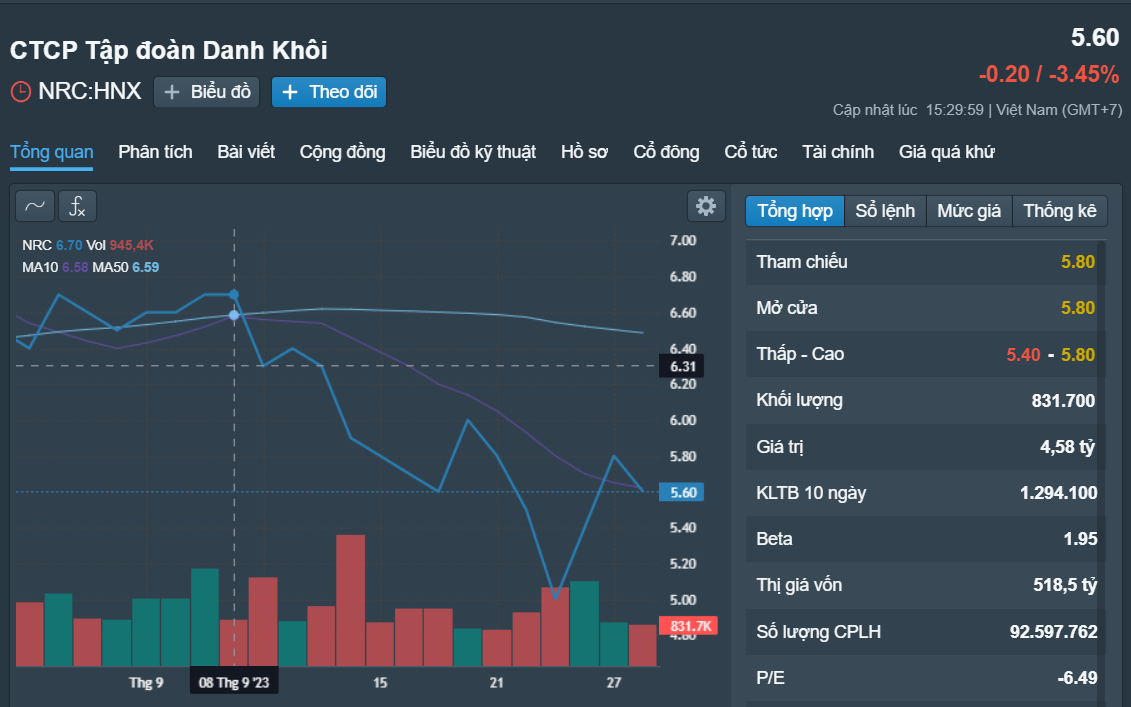Why did NRC’s net loss surge after the audit?
Among the main causes of the big post-audit rise in Danh Khoi Group JSC's (HoSE: NRC) net loss are a weak real estate market and unmet requirements to recognize revenue from investment cooperation contracts.

According to the newly released audited consolidated financial statements for 2024, NRC reported a sharp increase in post-audit net loss. Specifically, the company initially reported a loss of over VND 63 billion before the audit, but after the audit, the net loss surged to VND 137.3 billion, even though revenue remained unchanged.
The items that saw major fluctuations after the audit included general and administrative expenses, which rose by 40% to nearly VND 82 billion. Additionally, other income turned into a loss of VND 7.4 billion, whereas before the audit, it had posted a profit of VND 47 billion.
Beyond the sharp increase in net loss, the auditing firm also raised concerns about NRC’s going concern status. While the auditors did not issue a qualified opinion, they highlighted Note X.6 in the financial report, which addresses the assumption of going concern and the commitments from the Board of Directors and Management to ensure business continuity.
The firm reported a net loss of around VND 137.3 billion for the fiscal year that ended on December 31, 2024, and current liabilities were roughly VND 166.4 billion greater than current assets, according to the auditors. Additionally, as of that date, the business had not yet paid off its outstanding tax debt and accounts owed to suppliers, and it had violated several of the conditions pertaining to principle and interest payments on bonds.
“These conditions, along with other issues presented in Note X.6, indicate the existence of a material uncertainty that may cast significant doubt on the Group's ability to continue as a going concern. The Group may not successfully implement one or more of its plans, and along with future events and conditions, this could prevent the Group from continuing its operations. Consequently, Danh Khoi Group may not be able to realize its assets or discharge its liabilities in the normal course of business,” the auditors emphasized.
According to the company’s management, there were three main reasons behind the sharp increase in post-audit losses:
First, the real estate market remained sluggish. NRC’s leadership noted that in 2024, the market continued to struggle due to macroeconomic policy shifts, low liquidity, and declining demand. This negatively impacted the company’s sales progress and led to underperformance in revenue.
Second, the company did not meet the conditions to recognize revenue from investment cooperation contracts. Due to legal hurdles, many of NRC’s ongoing or recently initiated investment cooperation agreements could not be recorded as revenue, either because they did not meet accounting standards or the profit-sharing timeline had not yet been triggered.
Third, the company had to increase provisions. Amid the market downturn, some of NRC’s partners also faced payment difficulties, prompting the company to set aside provisions for partners showing signs of delayed payments or financial distress. This resulted in a surge in administrative expenses. However, the company remains optimistic that as the market recovers, its partners will be able to fulfill their obligations, allowing NRC to reverse these provisions and add them back as income.

NRC's stock price stands at just around VND 5,500 per share
In another development, NRC recently announced plans to partner with three companies in the agriculture sector to develop high-tech agriculture initiatives. These include: Vien Phu Trading and Manufacturing Co., Ltd.; Ea H’leo Forestry Co., Ltd. (EHL); and Buon Ja Wam Forestry Co., Ltd. (BJW).
One of them, Vien Phu, is headquartered in Ca Mau Province's U Minh District and specializes in the processing and preservation of fruits and vegetables. The other two businesses, which concentrate on forestry seedling development, forest maintenance, and afforestation, are situated in Dak Lak Province.
Vien Phu is noteworthy because, as of September 2019, it was owned by the Ho Chi Minh City Cooperative Alliance (Saigon Co.op).
In late October 2024, Vien Phu was found by the Inspectorate of the Department of Natural Resources and Environment of Ca Mau (now Department of Agriculture and Environment) to have illegally constructed multiple facilities on agricultural land as part of a 317.76-hectare clean rice raw material area project in U Minh. The inspection concluded that Vien Phu had unilaterally converted land use from rice cultivation to non-agricultural purposes, violating Article 12(3), Article 170 of the 2013 Land Law, and Article 31 of the 2024 Land Law.
The specific cooperation direction between NRC and its prospective partners has not yet been clearly disclosed.








